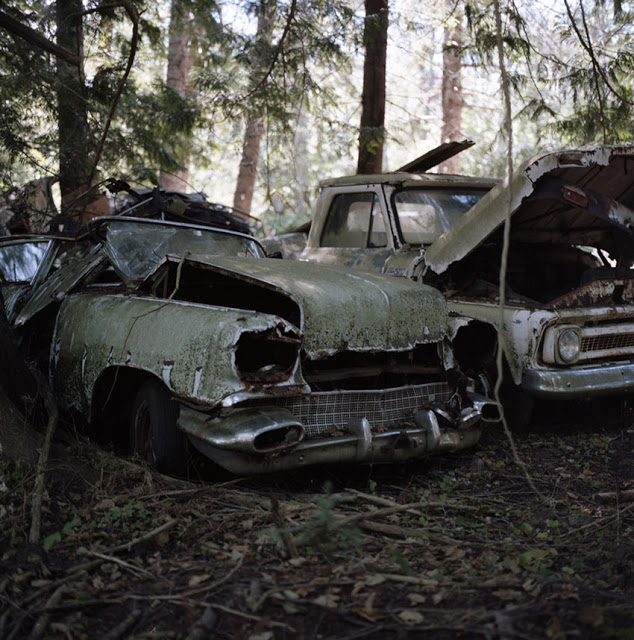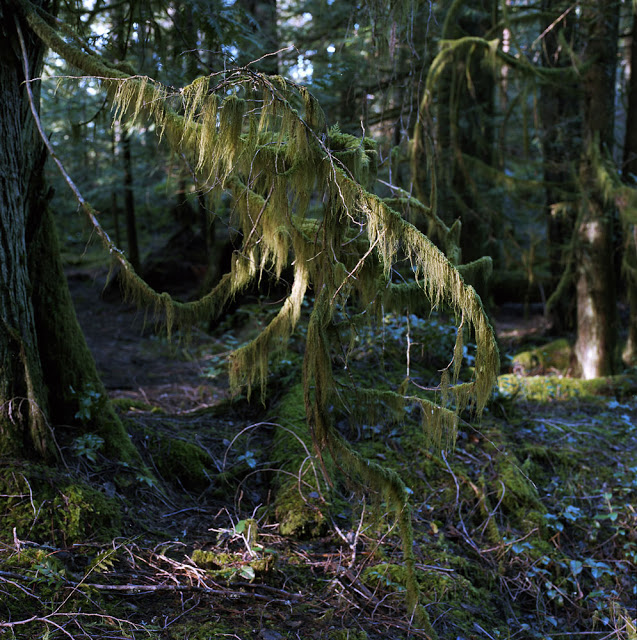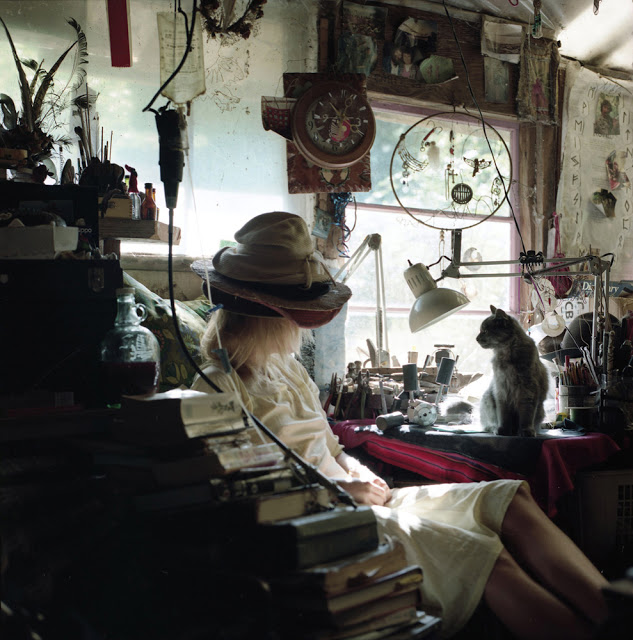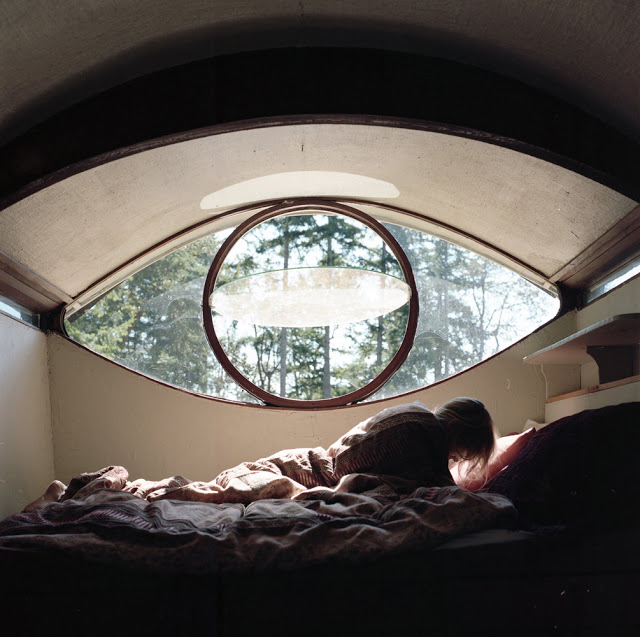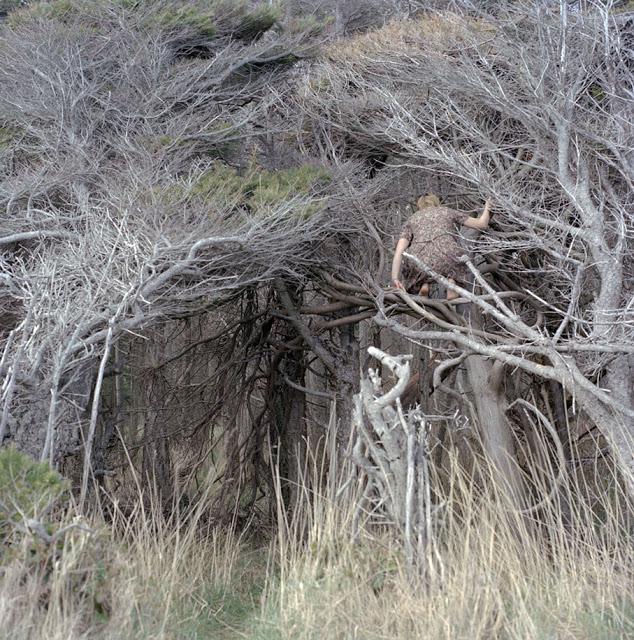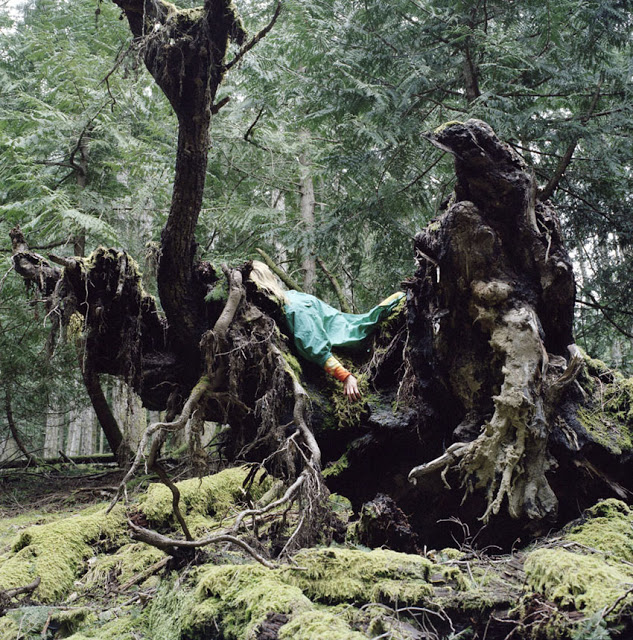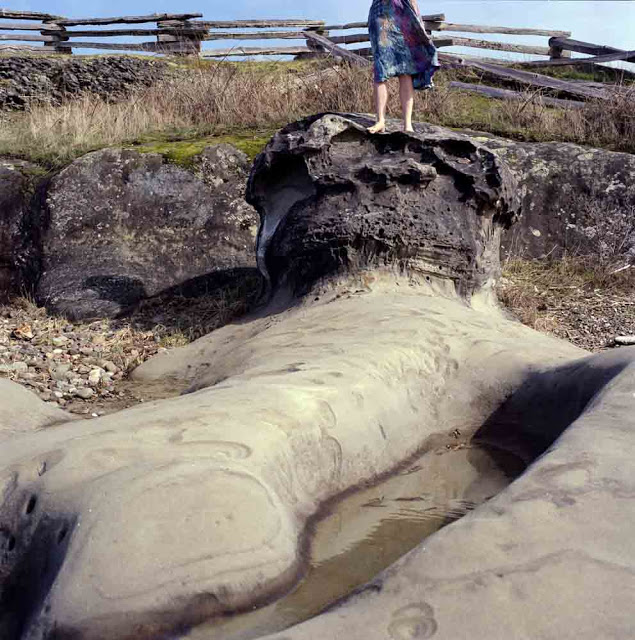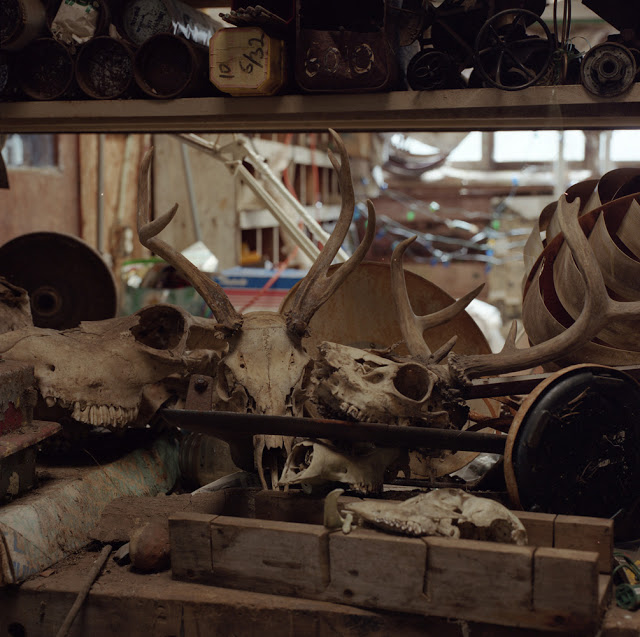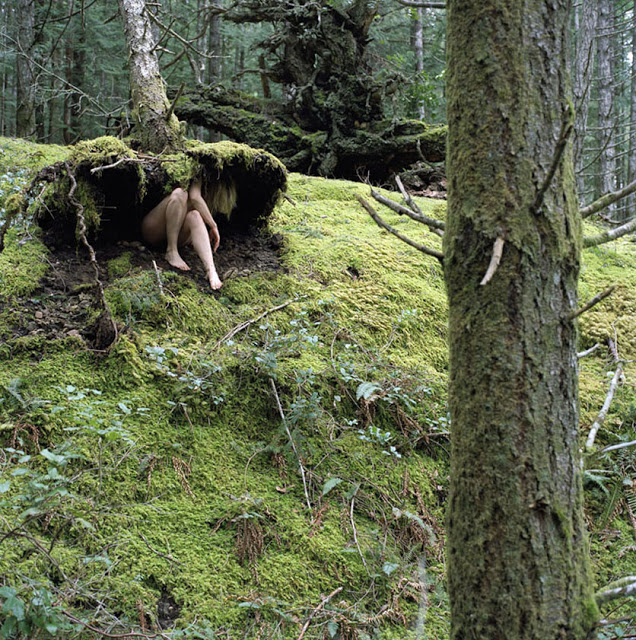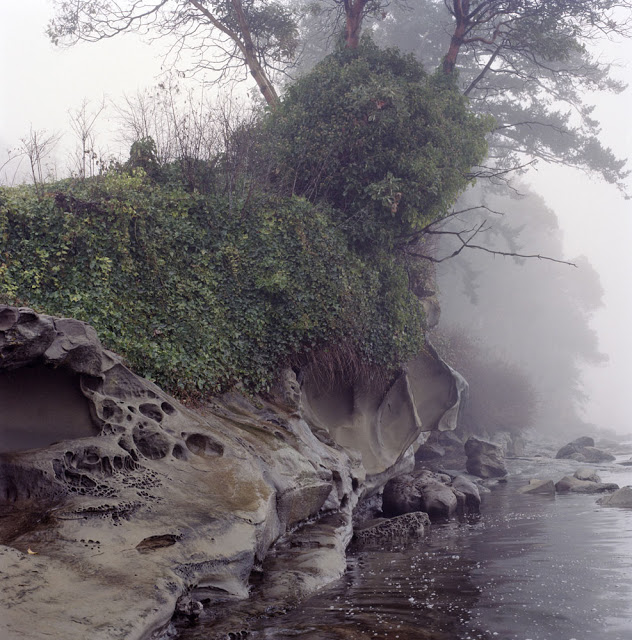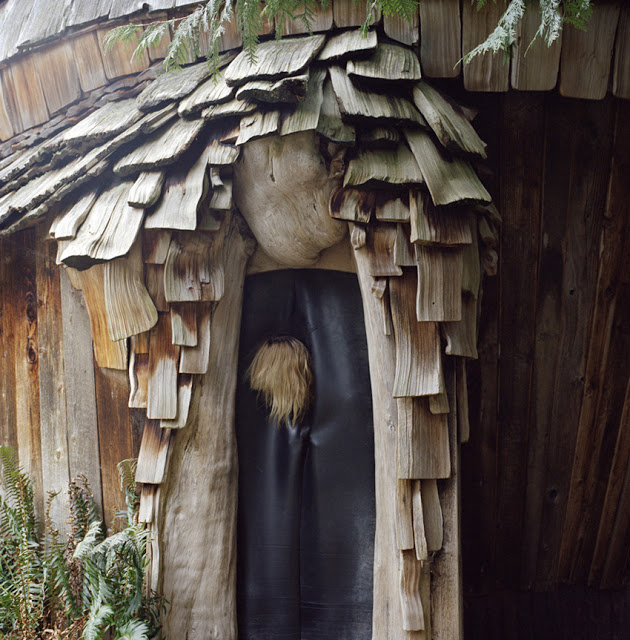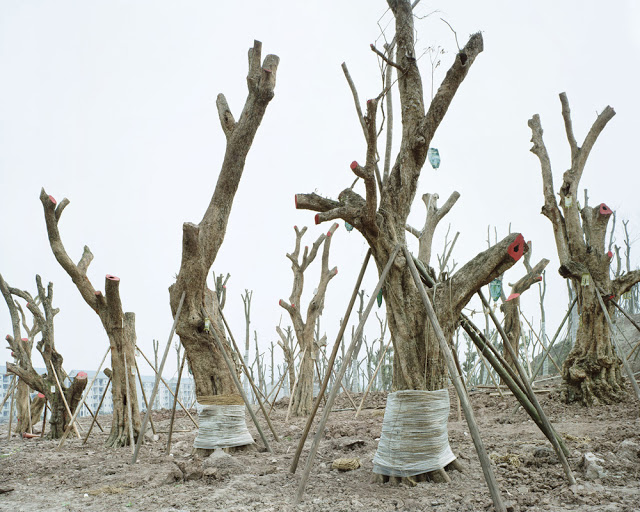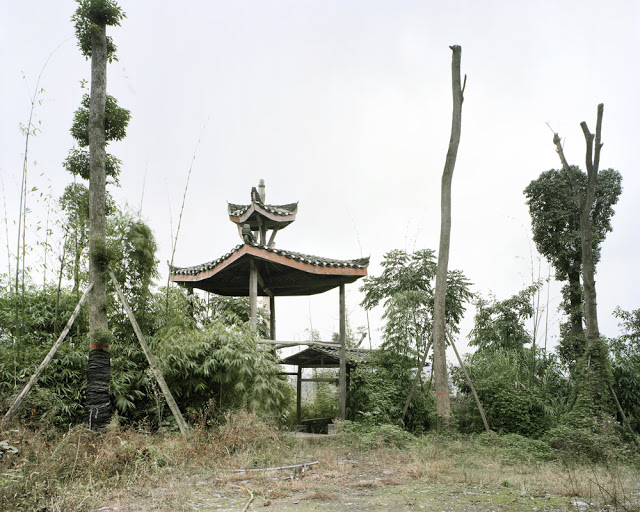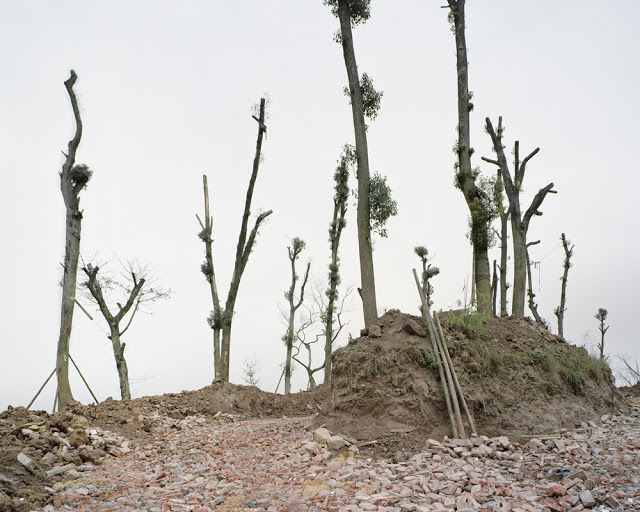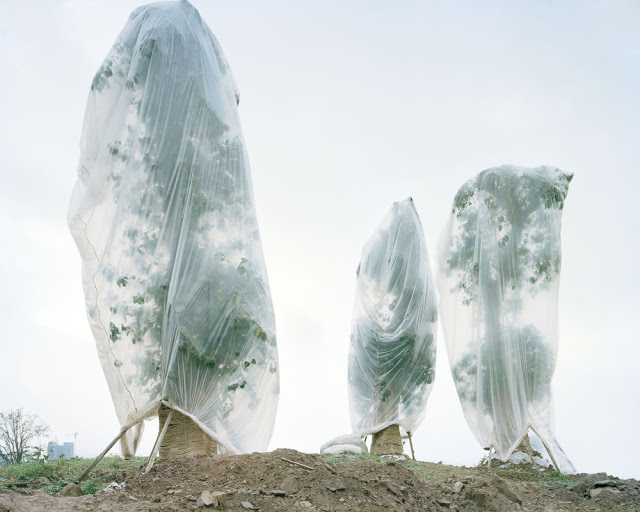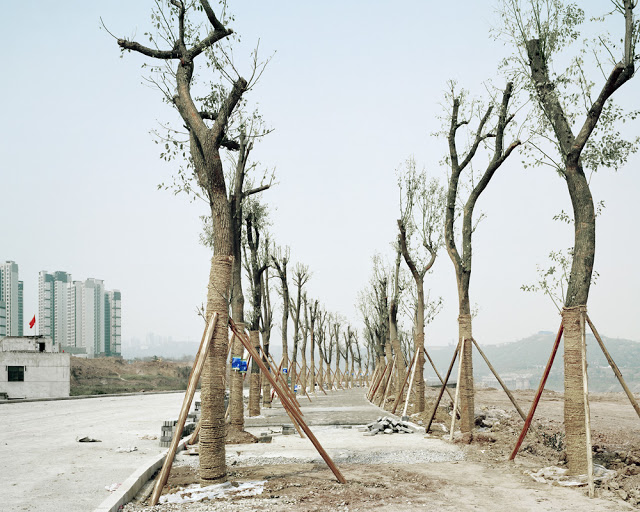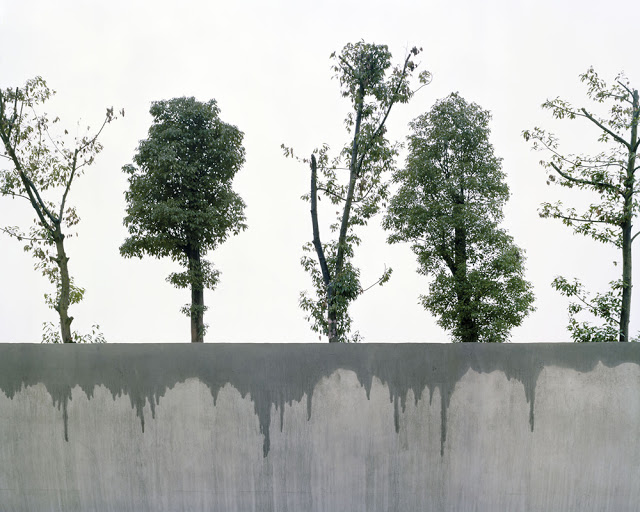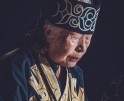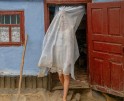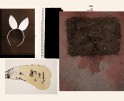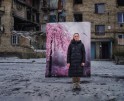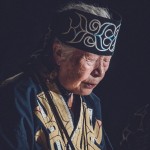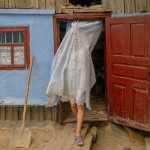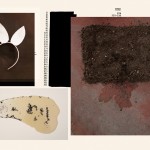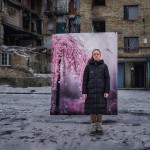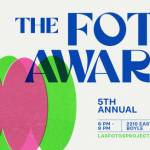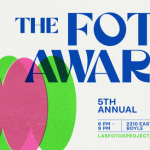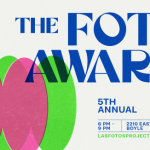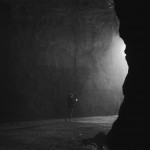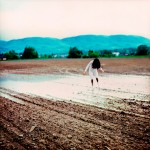CENTER AWARDS: Curator’s Choice Awards: Melissa Moore and Yan Wang Preston
Tina Schelhorn, Curator of Kolga Tbilisi Photo and founding Director of Galerie Lichtblick in Germany selected three winners for CENTER’s Curator’s Choice Award, first place going to Marc Asnin, 2nd place to Melissa Moore, and 3rd place to Yan Wang Preston. Today, Lenscratch features Melissa and Yan’s terrific work.
Tina’s comments on Melissa and Yan:
Melissa Moore uses Hippie era environments like tree houses and Green architecture buildings for her staged images. Playful and with subtle humor she transforms wilderness landscape and human forms into an utopian story of nature that let me smile and wonder. The images of the trees in Yan Wang Preston series look like out of a terraforming project in a science fiction – like modular units in a terra-shaping construction project. Bandaged and wrapped up these trees are waiting like aliens for a new place in reality and made me curious about the whole story behind.
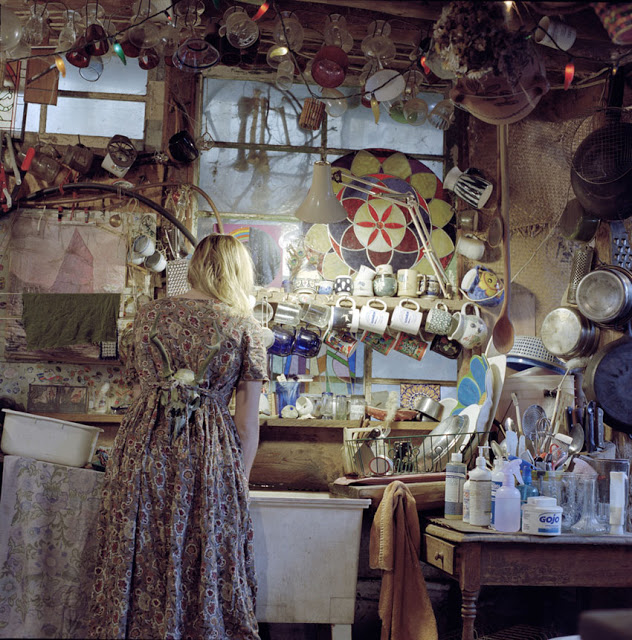
Melissa Moore is an artist based in London, UK, and an Associate Lecturer at University of the Arts London. She has a Masters in Fine Art from the Royal College of Art, with distinction for research. In 2008 her work was included in the international survey publication ‘New Photography in Britain’, Skira 2008. This new work was made during several extended stays on a small island in British Columbia, Canada. Selected works from this project were recently exhibited at Singapore’s International Photography Festival, and forthcoming group exhibitions are scheduled in Europe and Japan, the series is also to be published as a book ‘Land ends.’
These images are from a series created through multiple pilgrimages to a small Canadian Island in the Straight of Georgia. I am always captivated by its numinous landscape and idiosyncratic architecture; its rich contours can be identified with through sight, as seeing embodies the grasping of forms.
The vernacular buildings embody the wish to turn against rampant consumerism, pollution and political horror towards handmade houses; food; clothing and contentment. Immersing myself in the ecologies of both nature and community, I nestled into the landscape and the communal dreams of the island.
The small community survives deftly in relative seclusion, still I figure myself as a lone representative of its social vision, putting myself in the fundament of its nature. My borrowed belonging multiplies though imagery. I explore hoarded assemblages of driftwood; bone talismans; entropic machinery and deserted vehicles as if trying to mend rusty dreams of utopia. I survey my own interior kingdom, exploring the feedback between art and nature.
Yan Wang Preston recieved third place in the Curator’s Choice Awards. Yan is a British Chinese photographer based in Yorkshire, England. Her project, Mother River, explores the notion of cultural continuity within China’s mutating landscapes by photographing along the entire course of the Yangtze River, which is closely linked with the Chinese identity with its iconic landscapes and mythical legends. These images are from The Forest, part of her ongoing Yangtze River project.
Having re-located to the UK in 2005 from my home country, China, I am returning to the Yangtze River region with an initial drive to re-consolidate my Chinese identity. However, the country’s rapidly changing landscapes make this a seemingly impossible task. How does a culture continue and develop itself within a great era of change? Is there a disjunction between the modernisation of mind and matter? How to find continuity and harmony so essential to the traditional values, and so deeply embedded in the cultural meaning of the Yangtze River?And how to understand current China with a new perspective provided by my experience gained from the post-modern West?
My project explores such questions by adopting large-format (5×4) photography with a series of road trips along the Yangtze. Iconic as well as banal sites are visited, chance encounters and insightful research provide subject matters. With the ambition to combine the realism core of documentary photography and the pictorial heritage of Chinese traditional paintings, the photographs are meant to form a critical description of contemporary China investigating how the tradition and the modern intertwine. The project begun in 2010 and aims to complete by 2014.
Posts on Lenscratch may not be reproduced without the permission of the Lenscratch staff and the photographer.
Recommended
-
The International Women in Photo Association Awards: Lorraine Turci: The Resilience of the CrowMarch 16th, 2024
-
The International Women in Photo Awards: Natalia Garbu: Moldova LookbookMarch 15th, 2024
-
The International Women in Photo Association Awards: Rayito Flores Pelcastre: Chirping of CricketsMarch 14th, 2024
-
The International Women in Photo Association Awards: Alena Grom: Stolen SpringMarch 13th, 2024
-
The International Women in Photo Association Awards: Louise Amelie: What Does Migration Mean for those who Stay BehindMarch 12th, 2024

